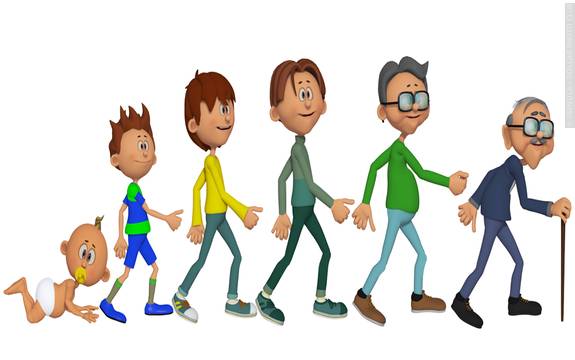Yes, It's June! In Indonesia, we start new academic year every July. This academic year was started by an induction training for new teachers, by me. This year, I covered Developmental Stages topic. This topic focus on students characteristics and the implications to classroom practice.
Let me ask you this : Why it's so important to understand our students?
Sometime..or many times.. we often forget that education is about teaching AND LEARNING. We often spend time, crafting a lesson that is fun and interactive to be taught, yet spend less time in getting to know and understand our students. Like me, I've been so focus on 21st century methods, until I forgot whether I teach in the way they learn. #sorrykids
Our students are growing and developing, just like us. The way we nurture them from early childhood plays important role for their future. We discussed about the principles of growth and development, brain, cognitive, psychosocial and moral development.
Understanding students developmental stages help educator to see learning through students eyes. By learning it, our lesson will be more relevant and stimulate thinking. How well do you know your students?
According to Piaget, our students also develop in their cognition. Cognition is the function based on how a person processes and reasons information. It revolves around many factors, including problem-solving skills, memory retention, thinking skills and the perception of learned material.
After we discussed the characteristic of each stage, we came up with this results :
For Pre-Operational Stage (Kindergarten kids), the implication to classroom practices are :
- Prepare the environment
- Constructivism : break down big/complex concept into smaller parts
- Use concrete and multi-sensory props and visual aids
- Make instructions relatively short
- Give children a great deal of physical practice (hands on)
- Use familiar examples - build from existing knowledge
- Provide many opportunities to experience the world
For Concrete-Operational Stage (K2 - K6)
- Constructivism : break down big/complex concept into smaller parts
- Use concrete props and visual aids
- Use familiar examples
- Promote collaboration
- Give opportunities to classify and group objects and ideas on increasingly complex levels
- Trigger HOT by presenting problems which require logical, analytical thinking to solve
For Formal Operational Stage (K7-K12 and up)
- Give students an opportunity to explore many hypothetical questions
- Encourage students to explain how they solve problems
- Whenever possible, teach broad concepts, not just facts, using materials and ideas relevant to the students
Yes, our students are developing. You have to see that there is so much potential in each of them. Our job is to prepare the environment and stimulate them to grow their thinking skill. I will share more about developmental stages in other are, in my next post!
PS : if you want our workshop slides, I will happily share it with you, just drop a message thru email or tweeters.

:max_bytes(150000):strip_icc()/2795457-article-piagets-stages-of-cognitive-development-5a95c43aa9d4f900370bf112.png)
No comments:
Post a Comment